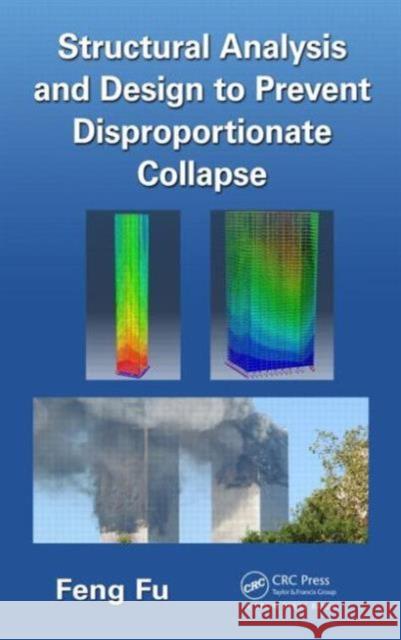Structural Analysis and Design to Prevent Disproportionate Collapse » książka
Structural Analysis and Design to Prevent Disproportionate Collapse
ISBN-13: 9781498706797 / Angielski / Twarda / 2016 / 184 str.
Structural Analysis and Design to Prevent Disproportionate Collapse
ISBN-13: 9781498706797 / Angielski / Twarda / 2016 / 184 str.
(netto: 720,05 VAT: 5%)
Najniższa cena z 30 dni: 654,86
ok. 16-18 dni roboczych.
Darmowa dostawa!
Hard Guidance on Preventing Disproportionate Collapse
Disproportionate collapse is a pressing issue in current design practice. Numerous causes are possible especially forms of extreme loading, such as blast, fire, earthquake, or vehicle collisions. But it is the mechanism and its prevention which are of especial interest and concern.
After the World Trade Center collapse in 2001, interest was sparked, and it is now imperative for a design engineer to have sufficient knowledge on both the analysis and design against disproportionate collapse. Detailed structural design guidance for preventing this has been developed in Europe and the US such as BS5950 in the UK, and guidance from the Department of Defense and the General Services Administration in the US. However, Structural Analysis and Design to Prevent Disproportionate Collapse is the first systematic text in the market to help design engineers or structural engineering students to properly understand this guidance.
- Covers the design and analysis of a structure to prevent disproportionate collapse
- Provides an understanding of disproportionate collapse problems for different structures under different loads
- Contains detailed knowledge on the design and progressive collapse analysis of complex structures
Incorporates ABAQUS(r), ETABS, SAP2000, and Highlights 3D Modeling Techniques"
As progressive collapse analysis is a distinctive and complicated procedure, it normally requires an ability to use a modern commercial finite element package, and Structural Analysis and Design to Prevent Disproportionate Collapse features a detailed introduction to the use of FE programs such as ABAQUS(r) in progressive collapse analysis. In addition, case studies are performed using 3D FE models based on various types of structures such as multi-storey buildings, long-span space structures, and bridges. These models replicate real collapse incidents and prestigious construction projects, such as progressive collapse analysis of the Twin Towers, structural fire analysis of World Trade Center 7, blast analysis of the Murrah Federal Building and progressive collapse analysis of the Millau Viaduct, which help designers to fully understand the failure mechanisms and effective mitigation methods in practice. "











